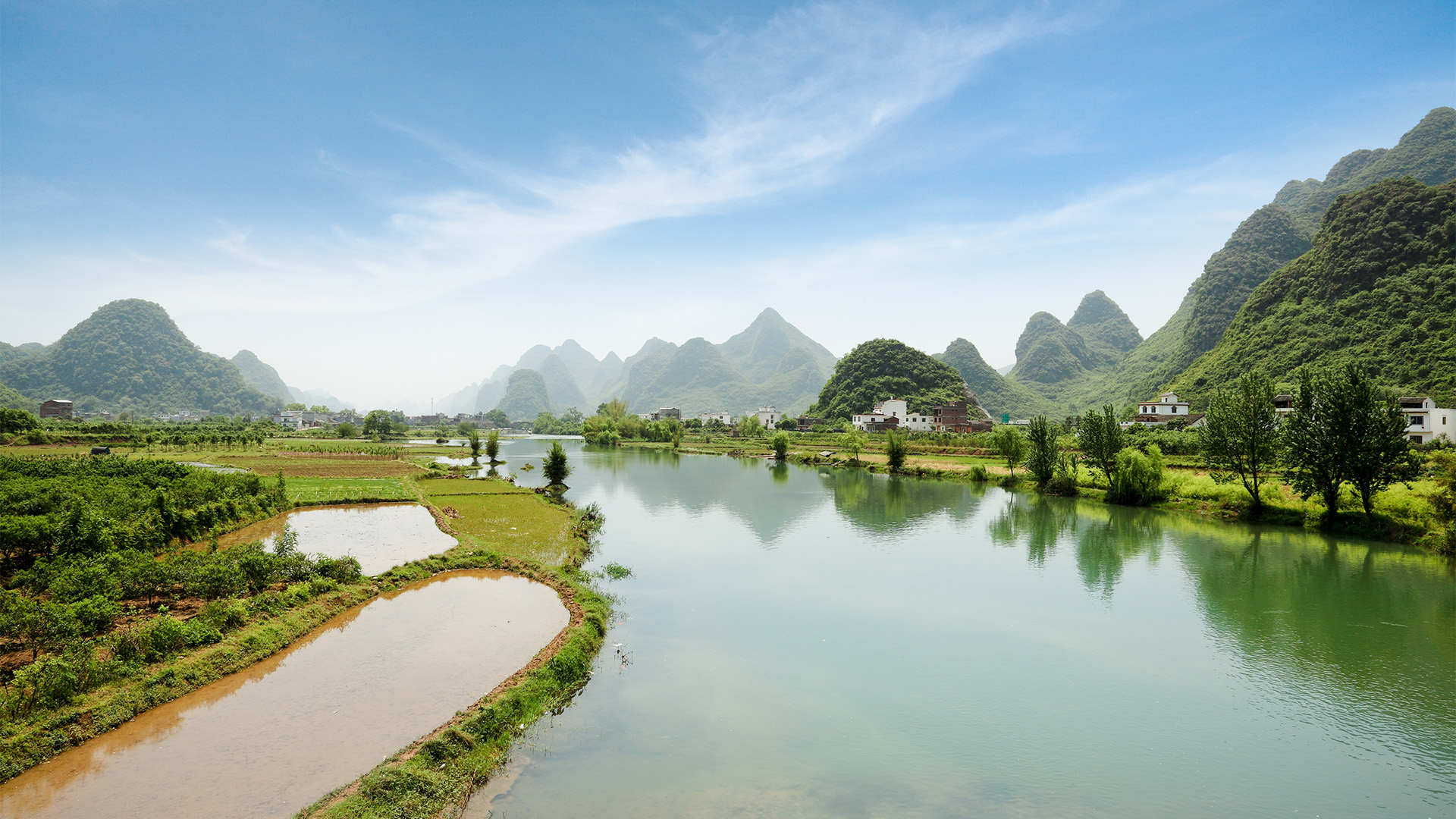Ensuring a Better Life Along the River
Life in the Countryside
Rural communities in Pingjiang County, Hunan Province, were among the poorest in the People’s Republic of China (PRC). Many households lived below the poverty line and had little or no access to safe drinking water and improved sanitation. Pingjiang County had a total population of 1.1 million people (2018) living in 25 towns and subdistricts, with urban and rural residents comprising 46% and 54%, respectively.
About 193 kilometers (km) of the 253 km Miluo River flow through Pingjiang County before draining into Dongting Lake, where it forms a vital wetland protection area and flood basin in the middle reaches of the Yangtze River system. Like many small river sub-basins in the Yangtze River system, the Miluo River is subject to recurrent flooding, which causes extreme damage to the economy and environment. Flood protection measures are inadequate, and better-integrated water resources and disaster risk management are needed.
The Miluo River also serves as the main source of drinking water for Pingjiang County. However, about half of all rural villages lacked household sewage or wastewater treatment facilities, farming practices were unsustainable, and farm waste management systems were inadequate. These resulted in considerable solid waste and wastewater being discharged to waterways that reach the river, negatively impacting the rural living environment and contributing to the declining water quality in the Miluo River.
Pingjiang County is part of the Yangtze River Economic Belt (YREB), a major economic growth engine. The YREB covers nine provinces and two municipalities that account for more than 40% of the population and freshwater resources, and 45% of the PRC’s economic output. The government’s YREB development plan 2016–2030 addresses the challenges to economic development in the middle and upper reaches of the Yangtze River Basin.
Rural Pingjiang County and its people have suffered for years from flooding and poor water infrastructure with poor access to clean water and sanitation. This project will improve flood protection, water supplies, and sanitation management in Pingjiang County while incorporating important ecological and green practices.
– Xin Shen, ADB senior project officer
Safer, Greener Environment
In support of the YREB development plan, ADB and the government agreed to adopt a framework approach that prioritizes ecosystem restoration, environmental protection, and management of water resources; inclusive green industrial transformation; construction of an integrated multimodal transport corridor; and institutional and policy reform. To improve people’s lives in rural Pingjiang, ADB approved the PRC: Hunan Miluo River Disaster Risk Management and Comprehensive Environment Improvement Project in 2020, which is part of the YREB framework. This $150 million loan will contribute to the YREB development plan and rural vitalization strategy, promoting poverty reduction, rural development, and green and inclusive growth. The KfW Bankengruppe is providing $70.9 million in parallel cofinancing. The Pingjiang County government provided counterpart financing.
“As one of the poorest regions of China, rural Pingjiang County and its people have suffered for years from flooding and poor water infrastructure with poor access to clean water and sanitation,” said Xin Shen, senior project officer, ADB. “This project will improve flood protection, water supplies, and sanitation management in Pingjiang County while incorporating important ecological and green practices.”
Water-related disaster risk management
The project will help cushion the impacts of floods, landslides, and natural hazards on people’s livelihoods and property in Pingjiang County. About 39 km of flood embankments and nature-based measures, such as ecological wetlands and conservation parks, will be constructed to control flooding of the Miluo River. The Huangjin River National Wetland Park will be restored and protected to increase flood storage and enhance biodiversity conservation. An integrated smart disaster risk management and early warning system will be established to inform disaster-related decision-making and improve institutional coordination.
Water supply, sanitation, and wastewater management
Better access to safe drinking water and sanitation services will improve the quality of life in the rural communities of Pingjiang County. ADB financing will support rural toilets upgrading and their connection to wastewater collection systems. Parallel cofinancing from the KfW will support the construction of a drinking water supply plant and associated distribution system. In addition, KfW support will build infrastructure to separate rainwater from sewers to prevent sewer systems from overflowing during rainy periods. The KfW will also help establish wastewater treatment services for rural households, schools, and health clinics.
Green procurement and ecological farming practices
The project is one of the first to pilot green procurement guidelines and practices at the county level and mainstream environmental education in the local educational system. The project will also raise the overall environmental literacy of Pingjiang residents through the leveraging effect of youth engagement. About 1,930 hectares of demonstration farms will showcase sustainable ecological farming practices, such as the adoption of organic fertilizers, integrated pest management, and soil conservation measures. Waste management of livestock farms will be improved to reduce non-point source pollution significantly. All these will help the county achieve sustained green transformation.
Better Rural Living
The project is expected to be completed in 2027. It will raise the quality of life in rural Pingjiang and address climate change and ecological pressures in the YREB. By then, it will have provided 107 villages in 14 towns with a supply of safe drinking water. Rural households in 21 villages in 12 towns plus 136 schools and 26 health clinics will also have access to wastewater treatment services. About 59,732 toilets in rural households in 464 villages in 24 towns will be upgraded and connected to wastewater collection systems. Overall, the project will benefit more than 523,000 residents in 25 project towns and subdistricts across Pingjiang County.
Project Details
China, People’s Republic of: Hunan Miluo River Disaster Risk Management and Comprehensive Environment Improvement Project
Cost
$353.6 million
- ADB Resources $150 million
- Government of the People's Republic of China $132.6 million
Cofinancing Partner
- KfW Bankengruppe (Loan) $70.9 million
Dates
Approval Date 27 November 2020
Signing Date 3 February 2021
Completion Date 30 November 2027


